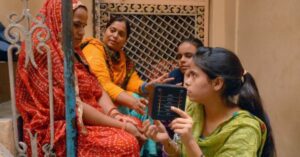What It Takes to Make a Delhi Colony 100% ‘Zero-Waste’
One of Delhi's first zero-waste colonies, Navjivan Vihar has set an example by its model of waste segregation and composting. Here's how this was achieved.
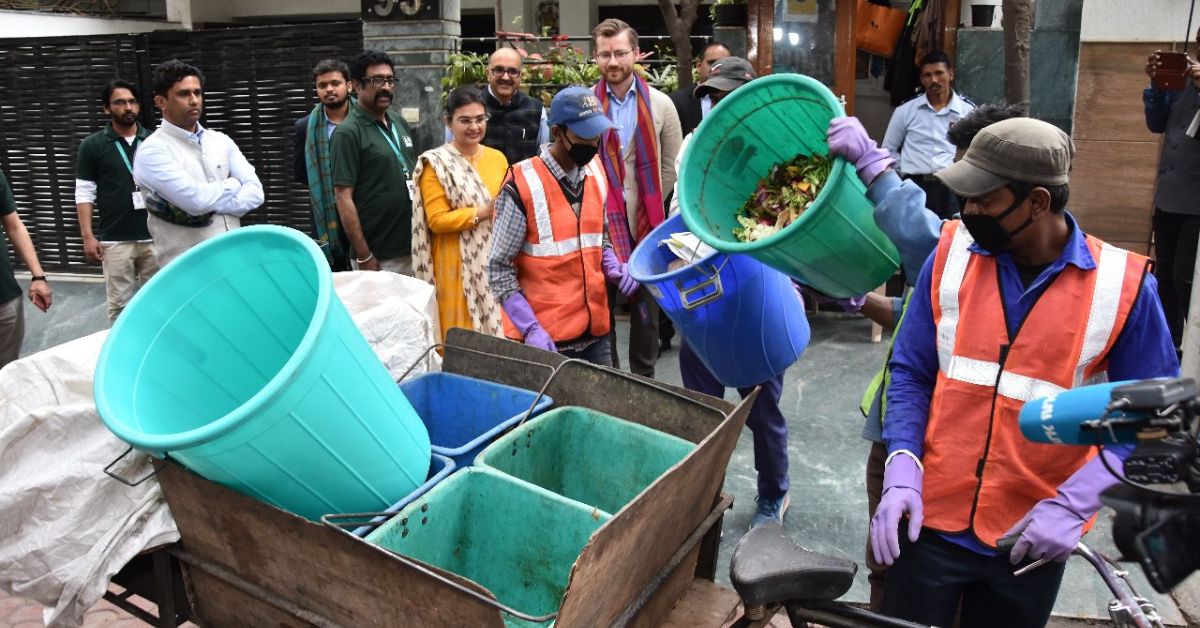
When was the last time you saw a sparrow?
The once-abundantly found species have responded to urban areas’ deteriorating environmental state by deserting them.
The decrease in the availability of tiny insects due to depleting vegetation cover and lack of nesting sites are among the reasons why the species, otherwise a companion of human beings for almost 10,000 years, has abandoned us.
But Navjivan Vihar, a colony in New Delhi, organises regular nest-making initiatives to woo the state bird back to them. The colony also has graffiti on its walls to create awareness about the importance of saving water. The society encourages the use of cloth bags instead of plastic, boasts terrace gardens, carries out clothes, toys and book donation drives, and organises events for environmental awareness.
Most importantly, under the leadership of secretary Dr Ruby Makhija — an ophthalmologist by profession — the colony has achieved a ‘100 per cent waste management at source model’.
“Since I’m a doctor, I know about the hygiene issues created by waste and the diseases which spread due to lack of proper sanitation. As a secretary, I got a platform to deliver solutions at a larger level, instead of just the individual level. So I took it up on priority,” says the 49-year-old in an interview with The Better India.
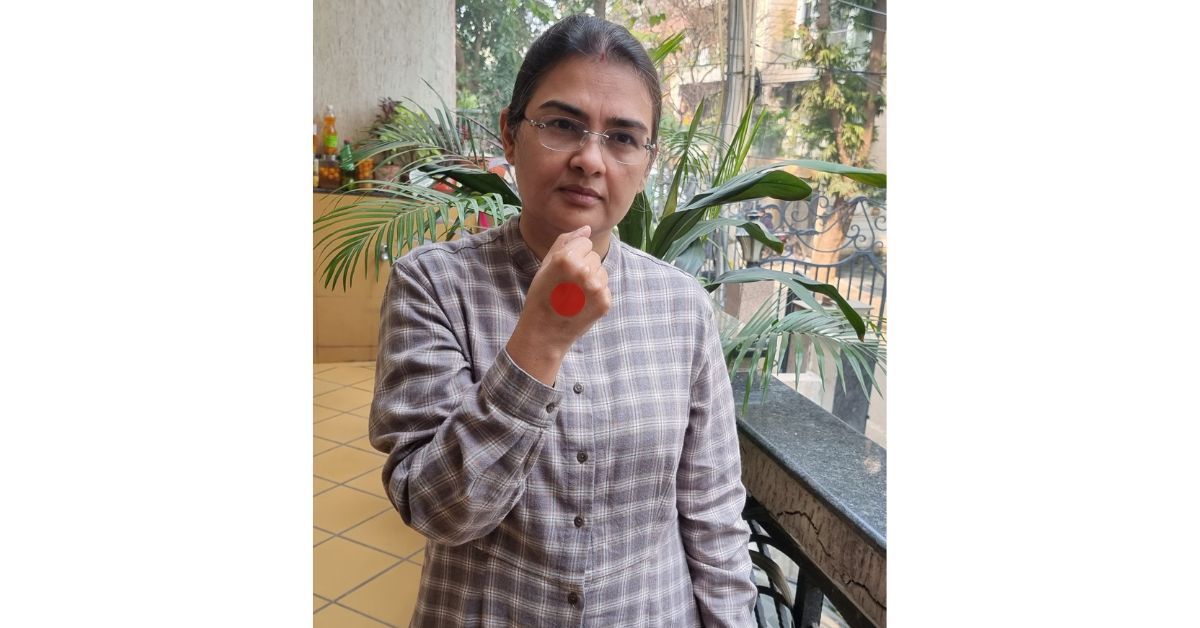
Today, the colony’s 250 households with almost 1,100 people come together to ensure zero waste through segregation and composting, setting an example for other colonies in the area.
Conversation and convincing
The process began about four years ago when the Municipal Corporation of Delhi (MCD) held a workshop about solid waste management. It offered information about solid waste management guidelines and elucidated the rules and penalties around them.
“Till then we hadn’t realised that waste was such a big issue. After this, we did research and took it up on priority,” says Ruby.
A few residents and committee members came forward to offer their support for the cause. Ruby is supported by Mona Vashisht, who handles fabric waste; Anuj Bhatia, in charge of water waste management and harvesting; Shammi Narang, who looks after general waste; and Gopa Banerjee, who handles garden waste.
The first step was ensuring that households weren’t discarding all their waste as one homogenous dump. Instead, they asked residents to segregate their waste into three categories — wet waste, dry waste, and hazardous domestic waste like sanitary napkins, broken glass, diapers, expired medicines, etc.
“We started going door to door to sensitise residents, garbage collectors, and domestic helps about the basics of waste management and the different dustbins,” recalls Ruby. “We also have a broadcast system in place where I wrote to my residents every evening about the work being done in the colony, also sharing videos and circulars. That helped sensitise them.”
It was while introducing this waste segregation idea that the group stumbled upon its first big challenge.
While the residents are generally educated and aware, and were easy to get on board, they struggled with convincing the domestic help to integrate this habit into their routine.
Ruby says that because the domestic help was often in a hurry to get home, they would not care about segregating the waste.
To tackle this, the colony organised a programme where they distribute free, biodegradable sanitary napkins to them every month. When the help came to collect the supplies, the group would have conversations with them, educating them about the importance of waste segregation, saving water, and more.
Soon, the change began showing. “In the bargain, they started practising waste segregation and water conservation, not just in our houses, but in their own homes too. It became a habit,” says Ruby.
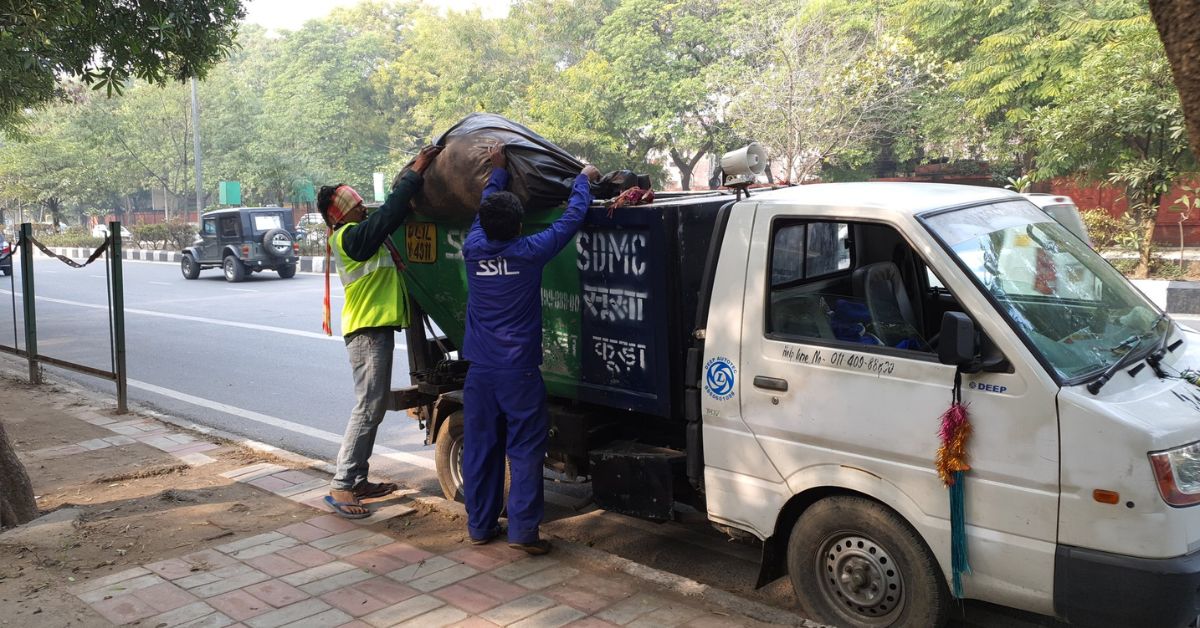
While waste segregation started, the group continued their research and learnt that a major reason for such initiatives not working out was a lack of in-house composting, which meant there was no ready outlet for waste disposal.
So, from day one, they also had composting solutions in the colony. All the wet waste goes to these composts instead of landfills and is then used in their gardens. “This was one of the biggest reasons we succeeded in attaining a zero waste model,” says Ruby.
The team began collecting all wet waste from the homes and taking it to the pits, where it was converted into compost.
“All I have to do is tell the cook to segregate the waste into different buckets. There’s no hassle. You just have to implement this system in your home,” says Chandraprakash Sabherwal, one of the senior citizen residents of the colony.
The colony has also tied up with local NGOs and recyclers to handle other waste which is either reused or recycled.
“Zero waste doesn’t literally mean zero waste. Certainly, we generate waste. But we try and not contribute anything to the landfills. That’s the whole idea,” adds Ruby.
Thinking beyond waste
Besides general and kitchen waste, the group has also taken specific steps to combat other types of waste.
After noticing that their water usage was wasteful, they installed aerators in all faucets, like taps and showers, to regulate the amount of water coming through.
“We shared a demo video with residents of the flow of water going down from eight litres a minute to 1.5 litres a minute,” says Ruby. This encouraged more residents to install the device in their homes, leading to water conservation.
The colony also has several rainwater harvesting pits to conserve rainwater and recharge groundwater. They had a plumber install an alarm system in the overhead tanks so one would know when they were full, preventing water from overflowing and being wasted. The colony also has two rain gardens.
“These are made with certain plants that retain a lot of water,” explains Ruby. They also organise regular workshops for gardeners about water-efficient gardening techniques.
Besides conserving water, they started looking for other ways to minimise garden waste. Today, they have leaf composters in all their gardens, ensuring that not a single leaf is left behind, says Ruby. These are treated with enzymes and bacteria and watered consistently so they can also be converted into compost, which then goes back to their gardens.
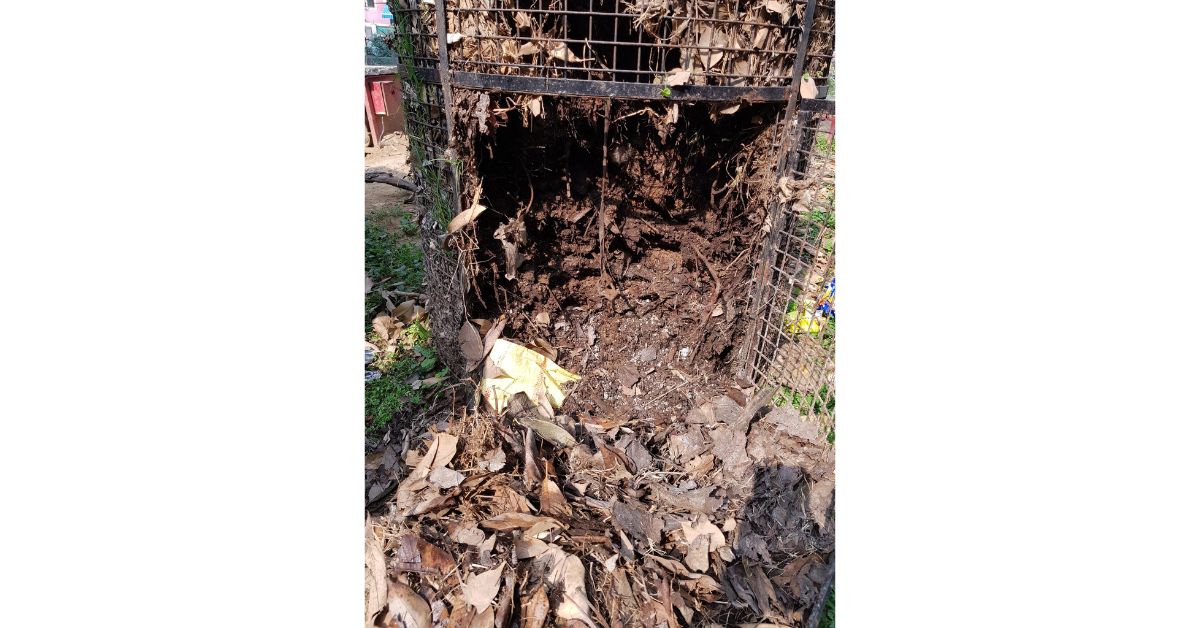
They’ve recently purchased a shredder to make the process faster. “Before, it took six months, but now shredded leaves take about two to three months to get converted into compost,” explains Ruby. While they haven’t yet found a place for the thicker branches, all the leaves, twigs, and small branches are thus used within the colony.
However, all these efforts do bring with it another challenge — financial constraints.
This makes progress a slow process, but they forge ahead nonetheless. The colony is now planning to invest in a better compost solution, so that people handling the compost don’t have to enter the pit to churn or vacate it.
In 3.5 years, a large amount of waste has been diverted from landfills, Ruby says.
“Almost 175 kg of wet waste is generated every day and 125-150 kg of dry waste, and it’s all taken care of. On average, about 10,000 kg of compost is produced by the colony every year,” says Ruby. Following their example, more nearby colonies are being inspired to implement similar measures, she adds.
“Throughout, the MCD has provided full support,” says Ruby, who is now also the brand ambassador for the MCD in the region.
“It feels very good to see Ruby’s efforts,” says Sabherwal. “She’s a pioneer in this field of work,” he adds.
To ensure these practices are continued by future generations, Navjivan Vihar also organises events and workshops to sensitise children about water conservation, waste management, air pollution, and other related issues. If you found our stories insightful, informative, or even just enjoyable, we invite you to consider making a voluntary payment to support the work we do at The Better India. Your contribution helps us continue producing quality content that educates, inspires, and drives positive change. Choose one of the payment options below for your contribution- By paying for the stories you value, you directly contribute to sustaining our efforts focused on making a difference in the world. Together, let’s ensure that impactful stories continue to be told and shared, enriching lives and communities alike. Thank you for your support. Here are some frequently asked questions you might find helpful to know why you are contributing?

Edited by Divya Sethu
This story made me
-
97
-
121
-
89
-
167






